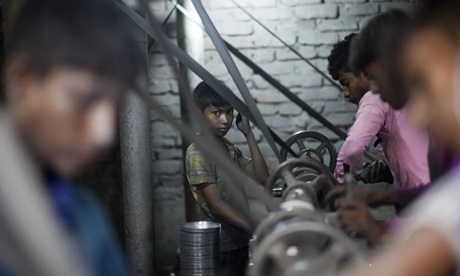Combating modern slavery is taking a back seat in New Zealand. Proposed legislation will not now go ahead.
The Government has also disbanded a group set up to provide advice on this international crime.
Members of the former Modern Slavery Leadership Advisory Group say that, by failing to act, New Zealand will fall behind its international partners and put businesses at risk.
Human trafficking is the fastest growing global crime, Caritas Aotearoa New Zealand warns.
In 2024 it was estimated that approximately 50 million people are currently enslaved and exploited worldwide. This estimate has increased by 10 million since 2019.
Modern slavery is not a Government priority.
Not a priority
After disestablishing the group in May, Workplace Relations and Safety Minister ACT’s Brooke van Velden said modern slavery is not a Government priority.
Several former group members are frustrated with the current Government’s failure to make businesses publicly report on their efforts to address exploitation risks in their operations and supply chains.
It was a policy the Labour party had been keen to introduce.
The former group members are concerned what the lack of action will mean for New Zealand.
Legislation vital
Legislation is necessary to bring New Zealand into step with a number of key trading partners and to meet our domestic and international consumers’ expectations, says the group’s former chair Rob Fyfe.
“We have a proud heritage as a nation standing up for what’s right and fair. Yet our voice is now missing on this issue …” he says.
Like World Vision, Caritas NZ says the Government’s inaction is out of step with strong public and business support for modern slavery legislation.
World Vision says it surveyed over 200 Kiwi businesses. 70 percent have no mechanisms in place to address modern slavery.
Without legislation, many won’t examine their supply chains and procurement practices.
Our human rights record
New Zealand’s human rights record was examined at the United Nations earlier this year.
The US and UK were among 14 countries that recommended our Government strengthen its policies on modern slavery and forced supply chain labour.
Modern slavery specialist Gary Shaw says the Government’s inaction misses the opportunity to reinforce national values of fairness, equality and freedom. It also misses an opportunity to protect the business community.
The Government’s attempt to protect business from additional regulation doesn’t make sense in this instance, Shaw says.
Many companies are aware our trade standards will need to match up with those of our largest trading partners.
But Shaw says our response will be haphazard and inconsistent due to the lack of government direction.
In addition to the need for agreements covering the country’s trade deals, Labour’s Camilla Belich says there is a moral imperative to act.
Those being exploited are the most important, she says. Then come the New Zealanders unwittingly allowing those practices to continue.
We don’t want New Zealand to be seen as allowing exploitation to continue when we could prevent it.
Source
